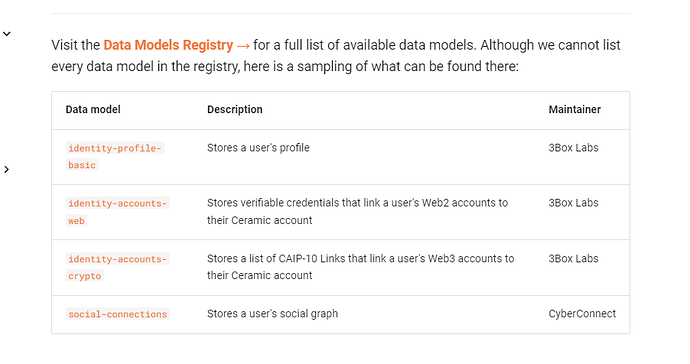Hello ,
I am a Ceramic learner but I am not a technical person
I wonder what motivates people to share data
Like Facebook they don’t want to share data because they fear losing market share to others
So what’s the motivation here?
Oh boy, what a big question. I think a full answer to this question will take more than I can write here. Might be a good idea for a post on our blog. ![]() But I’ll try my best for now.
But I’ll try my best for now.
I think you’re right that big established players with large data moats will have little incentive to move to a system like Ceramic in the short term, since their whole business model is built around holding data hostage and extracting as much value as possible from it.
We expect most of the adoption of composable data technology like Ceramic to come from smaller startups, at least in the beginning. These startups will choose to build on an open, decentralized, composable platform because of the benefits of shared network effects. Its very hard for any one startup to compete with the likes of Facebook, Google, Amazon, etc, because of the strong network effects that the incumbents enjoy. But where one application might fail to compete with the big tech monopolies, an ecosystem of dozens or hundreds of interconnected applications operating on a shared data layer, that can collectively build network effects together, can leverage each others reach and growth, and can easily and permissionlessly innovate and iterate on top of each other (much like what happens in DeFi today), have a far better shot. Applications will choose to share data to participate in the rich ecosystem of data being shared that will enable them to bootstrap their own applications more quickly and easily than was ever before possible, as they’ll be able to plug into a large set of existing users and data from day zero, without having to bootstrap their entire user dataset from scratch. Users will want their data shared between applications as it will give them richer and more seamless user experiences as they move between the interconnected ecosystem of applications that have a collective understanding of their preferences, connections, and previously shared content.
Once there is a sufficient amount of high quality data in Ceramic, then I expect bigger companies and products to start utilizing it as well as the value of the data ecosystem that has been built up there starts to outweigh their desire to hoard data and keep it tightly controlled.
Also at some point there will likely be financial incentives in the network to share data and be rewarded for sharing high-quality data, but I actually think the explicit financial incentives are secondary to the value that composable data can bring to developers, entrepreneurs, and end users.
Also if you haven’t seen it yet, I highly recommend checking out this post from our blog: Into the Dataverse
Thank you for the very detailed answer
And I wonder that we only give data to Facebook so we can use it and we don’t control it.
But most people don’t want their information exposed, so in Web 3 people say the data is controlled by the user.
So most people don’t want to share their data or expose their data, so the amount of data is really small.
Like the iPhone before using the app they ask the user if they want to be tracked and most of the time they don’t
Then I wonder about the amount of data will be very small
That’s my limited perspective, hope you can answer
Thanks for your support
And I want to ask if the models that are contributed have the owner’s permission
I mean the data of the people in that model
You don’t want to just contribute. Starting out you want to leverage the user network. But by leveraging the existing data, you are likely to contribute as well.
Yes! Users must sign a message wit their crypto wallet to log into any app building on Ceramic, which serves as a sort of consent message for the app to publish data to Ceramic on the user’s behalf
